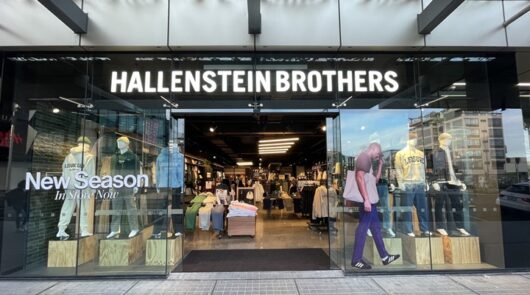There have been mutterings about it for a long time, and finally it’s happened: Thailand’s government has had enough of recreational cannabis use, and has begun its long-mooted crackdown on the sale and use of cannabis for non-medical purposes. This time, the government isn’t just talking about it, it means business, and it is sending a shiver through an industry worth well over $1 billion a year, not small potatoes for a developing country. From a retailing perspective it has major reperc
ercussions, and not just for the thousands of shops that sell cannabis. If the crackdown has a marginally adverse impact on tourism, there might be a knock-on effect to mainstream retailers as well. There will also be an effect on retail real estate. Everyone has a stake.
What just happened?
On June 23, the Public Health Minister, Somsak Thepsutin, signed off on an amendment to the existing regulations, which became effective almost immediately. Among other things, it requires customers to have a medical certificate and prescription to make a weed purchase, and it bars smoking cannabis on the premises without the supervision of a doctor. The latter is important for many of the dispensaries, which have a lounge-like atmosphere with a handful, sometimes more, of customers kicking back while they sample the wares.
The minister added that cannabis would soon be reclassified as a narcotic, just three years after it was taken off the list, meaning it will once more be rubbing shoulders in a regulatory sense with heroin and cocaine. Legislation is now making its way through the parliament that, if passed in its current form, will provide for harsh penalties: 60,000 baht (about US$1830) for smoking it recreationally. Selling without a licence will cost you up to 100,000 baht and a year in jail, where the food is basic and the service poor. Allowing for recreational use on your premises, one of the lifebloods of weed retail establishments, will earn the same punishments. The government is putting serious teeth into the law, albeit opportunistically since the changes had a political trigger: a short time before Thepsutin signed off on them, the Bhumjaithai Party, which was a major champion of liberalisation, walked away from the ruling coalition.
Enforcement begins in earnest
Meanwhile, enforcement of the newly minted regulations has also received some teeth. In Phuket on July 2, the police conducted an afternoon blitz on eight cannabis shops and shut down no fewer than seven of them that were found not to be in compliance with the regulations.
Other shops around the country have seen the writing on the wall and are closing voluntarily, unable to see how they can make the economics of medical marijuana work for them.
The tourism industry will be affected, too. ‘Amazing Thailand’, as the government’s pitch to lure overseas visitors goes, will now still be amazing – paradise really – but not for the pot users who have been flocking to the kingdom for the past two years. Many of the country’s weed shops are concentrated in tourism destinations, particularly Bangkok, Pattaya, Phuket and Chiang Mai.
Last year, on two separate occasions, the Thai government scrutinised proposals to restrict the use of cannabis to health purposes, scientific research and use as an ingredient in food and cosmetics. It caused a real hullabaloo, since it would mean the end of the road for thousands of shops and dispensaries that relied on recreational users to make them viable.
Cannabis was the next big thing in retail
Thailand delisted cannabis as a narcotic in June 2022, and there were massive consequences that legislators should have foreseen but did not. There was no explicit assent to using it recreationally; on the contrary, there were rules laid out to control it but, this being Thailand, where entrepreneurial types are expert at finding loopholes and where enforcement is often poor or nonexistent, thousands of growers and sellers quickly got in on the act of selling it to people just for getting high. It got so out of hand that a massive cottage industry emerged in which an estimated 12,000-18,000 weed shops and dispensaries opened around the country.
The timing was right for the rise of this cottage industry from a real-estate perspective: It was easier in the back half of 2022 than at most other times to find a place to hang out your shingle. It was the tail-end of the retail and real-estate carnage wrought by the Covid-era lockdowns, which caused the closure of thousands of customer-facing businesses and the destruction of the livelihoods of millions of Thais. The sight of empty, shuttered shops and restaurants was commonplace in every city and town, and spaces to open a new business could be purchased or rented at firesale prices.
While business boomed at the retail end, investment started pouring into weed cultivation and processing to meet the demand. The Thai cannabis industry became a Wild West without the gunfights, and many believed there was too much skin in the game for the government ever to turn back the clock. They were wrong.
There goes the neighbourhood
The Wonderland cannabis shop in the tourist hotspot at the corner of Sukhumvit Road and Soi 5 Bangkok is a gaudy example of why there was so much disquiet about recreational cannabis use. The shop’s theme colour is bright pink, not out of place in this red light district that is renowned for being one of the raunchiest in Thailand. The shop’s website brags that it is the “Ultimate Bangkok Marijuana Dispensary…where the emphasis is on high-class luxury to match the cannabis products on sale”. Difficult to find any serious medical connotations in a marketing pitch like that. But even Wonderland is a shrinking violet compared with many other establishments that have become lodged in the industry like kidney stones. There were weed cafes and restaurants, weed spas, weed festivals and even weed gentleman’s clubs, where smoking marijuana could be married to adult activities. Many of the shops were established in heavily touristed areas but a lot of the locals and tourist families alike found the ubiquitous pot culture and garish shop facades offensive. The tourists who came to smoke didn’t care and many lit up in conventional restaurants, causing problems for the owners and other customers. In beach resorts like Pattaya and Phuket, smokers proliferated on the beaches and other public spaces, where non-users were inconvenienced. In many ways, it was inevitable that something had to give.
Thailand tourism is already falling
There were indications before the new regulations came into effect that tourism numbers were beginning to tail off. Even by 2024, international arrivals had not risen back to the same 40 million level as before Covid-19, although more than 35 million is nothing to sneeze at. Then, in the first five months of 2025, international arrivals fell nearly 3 per cent, year on year. Businesses are already complaining about how quiet things are. For perspective though, Thai business owners are apt to say things are quiet even when it is obvious things are hopping. No one really knows how many international visitors are weed tourists but it is probably substantial, particularly as the weed consumption itself can be complemented by so many other attractions.
Looking on the bright side, from the perspective of the government, the tighter regulations might help with its quest to bring in higher-value tourists who hang out in the luxury beach resorts when they aren’t spending their money in the boutiques of Bangkok’s world-class luxury shopping malls and the nature tours for which Thailand has abundant natural resources. And for those travelling with their families, it will also improve the atmosphere, even in resorts like Pattaya, which are otherwise famous as hubs of the sex industry.
How many shops will survive?
The impact of the new regulations will force dispensaries either to reinvent themselves as clinics to keep themselves on the right side of the law or they will probably go out of business. Out of 12,000 or more dispensaries, it is impossible to say how many will survive but it is easy to see more than half of them vanishing. There is only so much illness to go around.
To some extent, enforcement will remain an issue and Thais are true geniuses at working the soft spots in regulations. This time though, the vibe is different; there is a more pervasive sense of despondency.
The impact on real estate will not be as severe, since the weed shops tend to be in locations where the spaces will be fairly easy to re-lease, particularly where there are heavy concentrations of tourists. Few are in conventional shopping malls, so it will not affect the mainstream mall players from a leasing standpoint.
Those who want to smoke weed for genuine medicinal purposes need not worry. There will still be enough of these places surviving legally. For the others, well, there’s always Amsterdam.
Further reading: Why Thailand’s liquor laws still baffle retailers and tourists.







